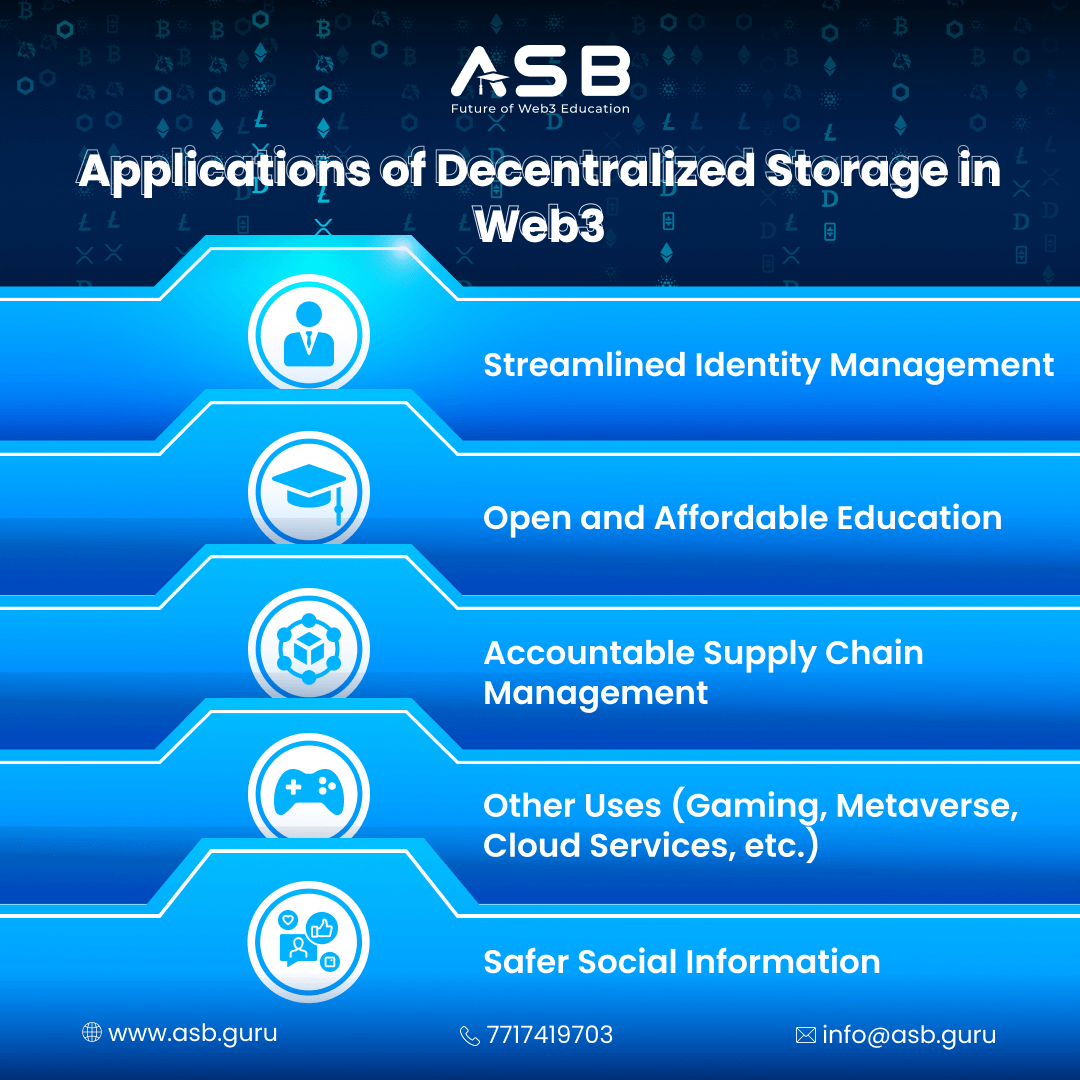Role of Decentralized Storage in Web3
The next generation of the internet, web3, is rapidly emerging as the most sought-after technology today. Based on the blockchain-powered protocols, it stands for open, safe, and user-focused digital interactions. It is worth noting that decentralized storage systems form the cornerstone of this paradigm shift.
The global Web 3.0 market which stood at USD 0.4 billion in 2023 is expected to expand at a CAGR of 44.9% and reach USD 5.5 billion in 2030.
In this article, we explore the significant impact of decentralized storage solutions as a part of the web3 ecosystem.
What is Decentralized Storage?
Unlike the storage in a centralized location or server, data in a decentralized system is dispersed throughout a network of nodes. In this, there is no involvement of central authority as every stakeholder holds secure access to the data. While the origin of decentralized data storage dates back to the 1960s, it gained prominence only after the introduction of blockchain technology.
The idea of distributed architecture was initiated to tackle network failures and bring greater accountability. Thereafter, it led to the conception of P2P (peer-to-peer) networks and open-source software projects.
With blockchain, decentralized data is backed by cryptographic techniques, making it more robust and tamper-proof. Nowadays, the most popular and best decentralized storage solutions include Filecoin, Bittorrent, Arweave, Sia, Safe Network, and Storj. For instance, Filecoin is a P2P storage network modeled after Amazon S3. Its network’s distributed data storage and sharing layer, IPFS, serves as the foundation.
Benefits of Decentralized Storage in Web3
Web3 requires decentralization as its basic standard, which is why this kind of storage is also called web3 storage. Its applications have garnered the attention of several investment firms and venture investors. Here is an overview of the key advantages of decentralized data mechanisms for web3:
Stability and Reliability
Since there is no single point of failure in decentralized networks, they are more dependable than centralized cloud storage. Instances of data crashing, hacking attempts, or network failure are not possible as the data is present across a set of different nodes. This prevents any sort of data loss or inaccessibility.
Cost Effectiveness
With decentralized storage, users have the flexibility to avoid large upfront capital expenditures. At the same time, the related organizations are getting a good competitive edge from the cost-efficiency benefits of dispersed storage. Also, the users can rent out their excess storage space and receive tokens or incentives in exchange.
The latest analysis shows that the average cost of decentralized storage solutions is almost 79% less than that of centralized ones. By reducing costs throughout the ecosystem, the economic model offered by decentralized alternatives helps users and storage providers alike.
Complete Privacy and Data Ownership
Due to the absence of intermediaries and centralized authorities, the data stored in a decentralized manner on the blockchain is private and absolutely under the control of its owners. In other words, no third party can modify or meddle with your data. This establishes self-sovereignty and autonomy, securing the data with utmost efficiency.
Applications of Decentralized Storage in Web3
Now that we can clearly discern that web3 relies heavily on decentralized storage systems, the next step is to watch out for its potential applications across various industries:

Streamlined Identity Management
Decentralized storage solutions enable decentralized identifiers (DIDs), the kind of digital identities that are not managed by centralized authority, and allow smooth engagement with dApps and similar platforms. These empower the users, thus reframing and democratizing online interactions.
Open and Affordable Education
Decentralized learning platforms present better opportunities for research and education by breaking down barriers and letting people collaborate on a global level. Further, with blockchain-based web3 storage, the authentication and validation of degrees and certifications can be made simpler and more secure, with students gaining greater control over their data and personal information.
Accountable Supply Chain Management
Throughout the supply chain, decentralized portals facilitate tracing and record-keeping of the resources. In addition to preventing fraud and building confidence between manufacturers and consumers, web3 technologies give a huge boost to the transparency of the processes.
Safer Social Information
With decentralized platforms, users solely own and manage their identities, data, and content. This is in complete contrast to the existing social media platforms, where all the user information is stored on a centralized database. Besides, users can curate their own decentralized platforms suited to particular interests, thus getting liberated from the control and algorithmically-driven content filtering of centralized platforms
Other Uses
Furthermore, web3 storage proves highly productive and breach-resistant for gaming, metaverse, dApps, DeFi, insurance, healthcare, and associated platforms.
The Bottom Line
Today, decentralized technologies have already proven beneficial and witnessed widescale adoption in the finance and gaming industry. As regulations are set in place, more industries will follow suit. is to offer fresh approaches to storage.
Pushed by futuristic and more advanced blockchain protocols, decentralized systems will foster innovation in the digital sector and make way for the adoption of a permissionless and trustless web3 ecosystem.
